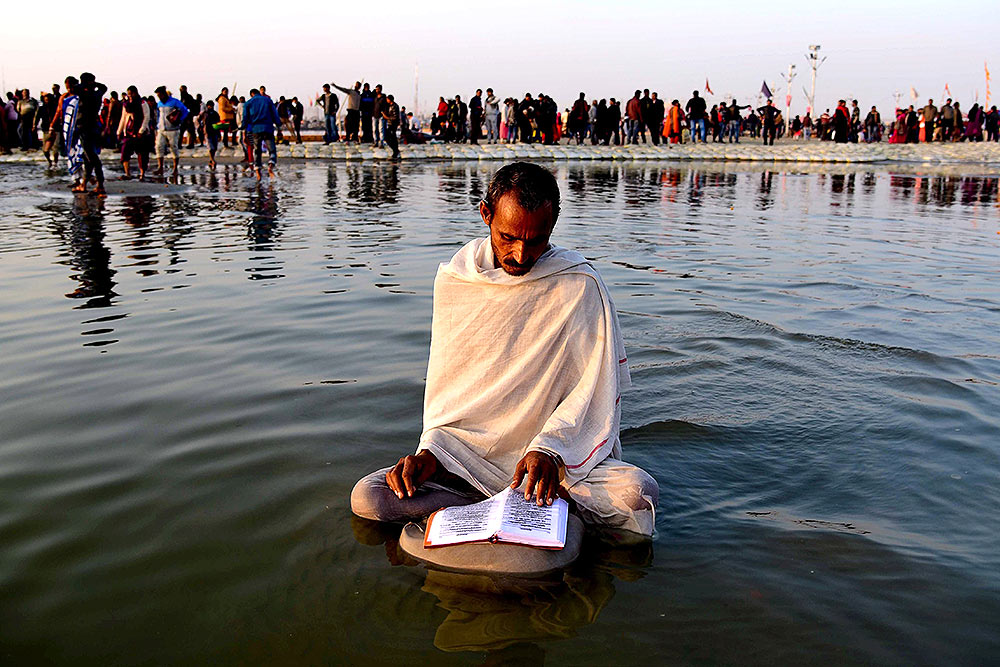
Maghi Purnima
Maghi Purnima is the last and the most important event of the Magh month (Jan- Feb). Purnima or full-moon day is known to be an important day in Hindu tradition as many of the religious and spiritual rituals are performed during this. Magh Purnima is one of the most auspicious full-moon days. It marks the end of ‘kalpwas’ which begins from full-moon day of Paush month.
Rituals
Magh Purnima is a ‘bathing festival’ - across India, taking a dip in Ganga, Yamuna or other holy rivers as Krishna, Kaveri, Narmada, Tapi etc holds extreme importance. Devotees flock at the ‘Triveni Sangam’ in Prayag. Besides, a holy dip in the sea at Kanyakumari, Rameshwaram or in Pushkar Lake in Rajasthan also holds importance.
In Tamil Nadu it is celebrated as ‘float festival’ in which decorated idols of Devi Meenakshi and Lord Sundareshwarar are mounted on floats. The day is also dedicated to Lord Brihaspati (as Brihaspati is the overlord of Magh Nakshatram).
After the ritualistic bath, devotees worship Lord Vishnu and Hanuman. Performing Satyanarayana Puja on the day holds great significance. Banana leaves, sandalwood paste, til (sesame), supari (betel nut), mauli and fruits etc. are used for this puja. Fasting on Magh Purnima is considered to be rewarding. One single meal is allowed which devotees eat in the evening after offering ‘arghya’ to the moon. Reading Bhagwad Gita and Ramayana are considered a significant ritual this day.
Like every other Hindu festival, charity or donation is also an integral part of this day. Donations can be in any form and should be made to brahmins or the needy ones. As per Hindu scriptures donating til is very auspicious in the month of Magh. In some regions ancestors’ rituals are also held this day to gratify their ancestors in the Pitra Lok.
Buddha
In Buddhism also the day is of a special significance as Buddha announced his ‘Nirvana’ (leaving the mortal body) on this day. At Buddhist monasteries and viharas, religious ceremonies are held and prayers and sacred verses from ‘tripitaka’ are chanted.
Sant Ravidas
This day is also celebrated as Sant Ravidas Jayanti. Ravidas belongs to the Ramanandi tradition. He was born in Varanasi to shoe-maker parents on Maghi Purnima. He is one of the foremost Bhakti saints, and his writings are found in Adi Granth, Panchvani, etc.
The day brings an end to ‘kalpwas’ which means the end of the camp where devotees reside at the bank of the holy rivers for the whole month by maintaining strict self-control. The kalpwas includes a disciplined lifestyle for the whole month like sleeping on the ground, single meal in a day, participating in religious and spiritual conversation and activities, and making donations. The month long austere lifestyle transforms a person completely from within and brings him/her close to their final goal i.e. reunion with God.
Author Ms Hema Trivedi is an ardent devotee of SriKrishna.